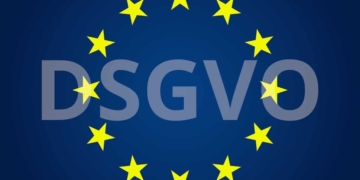The I. Civil Senate of the Federal Court of Justice, which is responsible among other things for claims under the Injunctions Act, has to rule on the question of what requirements must be met for consent to the storage of cookies on a user’s terminal device.
Facts
The plaintiff is the Federal Association of Consumer Organizations.
The defendant organized a sweepstake at its Internet address in September 2013. After entering the zip code, the user was taken to a page where the user’s name and address had to be entered. Below the address entry fields were two checkboxed consent forms.
By confirming the first text, the checkbox of which did not have a preset check mark, the consent to advertising by sponsors and cooperation partners of the defendant by mail, telephone, e-mail or SMS was to be declared. There was the possibility to choose the advertising sponsors and cooperation partners from a linked list of 57 companies. The consent could be revoked at any time according to the notice text.
The second checkbox was provided with a preset checkmark and had the following text:
I agree that the web analytics service Remintrex is used on my site. As a result, the competition organizer, the [defendant], sets cookies after registration for the competition, which enables [the defendant] to evaluate my surfing and usage behavior on websites of advertising partners and thus interest-based advertising by Remintrex. I can delete the cookies at any time. Read more here.
In the explanation linked with the word “here” it was pointed out that the cookies would receive a certain randomly generated number (ID) associated with the registration data of the user, who had to enter his name and address in the web form provided. If the user with the stored ID would visit the website of an advertising partner registered for Remintrex, this visit should be recorded as well as which product the user is interested in and whether a contract is concluded.
The default check mark could be removed. However, participation in the competition was only possible if at least one of the two fields was ticked.
Insofar as relevant in the appeal proceedings, the plaintiff seeks to prohibit the defendant from including or relying on corresponding declarations of consent in sweepstake agreements with consumers. In this context, the request regarding the second text for the declaration of consent also concerns the default setting in the checkbox. The plaintiff also demands compensation for the warning costs.
Previous process history
The Regional Court ordered the defendant to cease and desist with regard to both declarations of consent and to pay warning costs. The defendant’s appeal was successful with regard to the application for an injunction against the use of the pre-set declaration of consent to the use of cookies. The Higher Regional Court assumed that only the claim for injunctive relief with regard to advertising by third parties existed under Section 1 UKlaG in conjunction with Section 307 (2) UKlaG. 1 BGB. The declaration on consent to advertising, which was pre-formulated by the defendant and used in connection with the participation in the lottery organized by the defendant, constituted an unlawful act pursuant to Section 307 (1) of the German Civil Code (Bürgerliches Gesetzbuch). 1 BGB (German Civil Code) constitute invalid general terms and conditions of business. The wording of the clause complies with the requirements of Section 7 (2) of the German Civil Code. 2 No. 2 UWG is not sufficiently taken into account. In contrast, the pre-formulated declaration on the consent to the use of cookies stands up to a content review. The required declaration meets the requirements for consent to the use of cookies in accordance with the relevant provisions (Section 4a, Section 28 (3a) sentence 2 BDSG old as well as Section 13 (2), Section 15 (3) TMG old).
Both parties have lodged an appeal, which was allowed by the Higher Regional Court. The plaintiff also wants to obtain the granting of his request related to the declaration of consent to the setting and use of cookies. The defendant continues to pursue its motion to dismiss the action in its entirety.
The Federal Court of Justice suspended the proceedings by order of October 5, 2017 and referred various questions to the Court of Justice of the European Union on the interpretation of Union law regarding the validity of consent to the setting of cookies by means of a pre-set checkbox. The reference for a preliminary ruling concerns Art. 5 para. 3 and Art. 2 lit. f of Directive 2002/58/EC concerning the processing of personal data and the protection of privacy in the electronic communications sector (Directive on privacy and electronic communications) in conjunction with Art. 2 lit. h of Directive 95/46/EC on the protection of individuals with regard to the processing of personal data and on the free movement of such data (Data Protection Directive) and Art. 6 para. 1(a) of Regulation (EU) 2016/679 on the protection of individuals with regard to the processing of personal data, on the free movement of such data and repealing Directive 95/46/EC (the General Data Protection Regulation).
The Court of Justice of the European Union answered these questions in a ruling on October 1, 2019(see this post). The Federal Court of Justice will now continue the oral proceedings in the legal dispute the day after tomorrow.












































